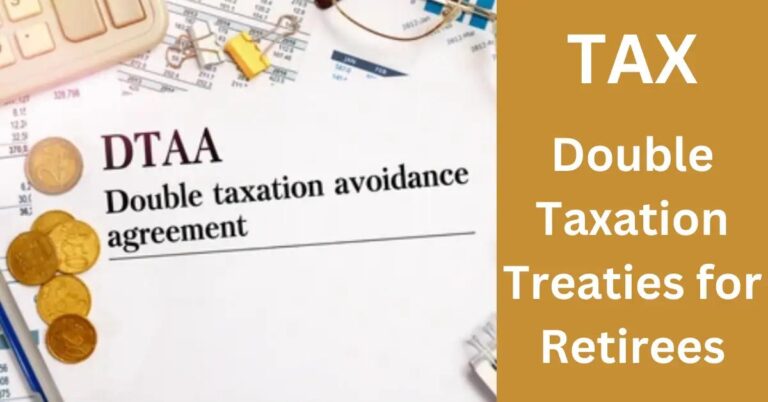TL;DR:
- Retirees should manage currency fluctuations using multi-currency accounts and diversify income streams.
- Currency exchange gains may be taxed; understanding tax rules is crucial.
- Monitor currency rates with tools for real-time updates.
- Use forward contracts to lock in favorable exchange rates.
- Specialized currency providers like OFX or Wise offer better rates than banks.
- Taxation treaties prevent double taxation of foreign pension income.
- Tax efficiency strategies, such as pension exemptions, can protect funds.
- Choose between banks and fintechs like Wise/Revolut for reliable international money transfers.
- Living abroad affects retirement costs; Southeast Asia is generally cheaper, while Europe is pricier.
- Adapting to local economic climates and understanding currency impacts is essential for financial security.
Ever wondered how currency changes can impact your retirement savings? Currency exchange affects your nest egg more than you think. Retirees must manage currency ups and downs to protect their income. From choosing the right exchange strategies to using multi-currency accounts, I dive into the tools and tricks you need. Discover how taxes come into play and explore real stories of retirees who’ve mastered these challenges. Are you prepared to keep your retirement funds safe?
How Can Retirees Manage Currency Fluctuations Effectively?
Managing currency fluctuations is vital for retirees who rely on foreign income. Currency volatility can impact the value of savings across borders. Retirees must understand how to protect their hard-earned money from these changes in the foreign exchange market.
What strategies help mitigate currency risks? Diversifying income streams and using multi-currency accounts can be effective. Multi-currency accounts let you hold and transact in different currencies, reducing risk. This approach allows retirees to keep savings in a stronger currency when others weaken.
Do you get taxed on currency exchange? Yes, currency gains may be taxed. Retirees must understand tax rules in their country to manage costs. Each country has its own laws about taxing these gains. For example, in some places, you pay taxes only if you sell a currency and earn a profit.
Monitoring currency rates with reliable tools is crucial. Using apps and online platforms can give real-time updates. This constant monitoring helps retirees decide when to change or hold currency.
Case studies show that retirees can navigate currency markets well. Some retirees preserve retirement income by staying informed and using strategic tools like forward contracts. A forward contract allows you to lock in an exchange rate for a future date. This way, you can avoid losses due to currency swings.
How does income affect the foreign exchange market? Income affects demand and supply for a currency. Large movements in money, like pensions paid from abroad, can shift exchange rates. For retirees, shifting money into different accounts at different times might benefit savings.
Reviewing these strategies shows a careful approach helps. Retirees best protect funds if they diversify and plan. By understanding both tax implications and currency markets, retirees enjoy a more stable financial future.
What are the Best Strategies for Optimizing Retirement Income Through Currency Exchange?
To make the most of your retirement savings, understanding currency exchange is crucial. First, let’s address a common question: How can you use a retirement income and currency exchange calculator? These tools help you predict how exchange rates affect your money. They compare different rates to maximize your purchasing power in retirement.
One effective strategy is using foreign exchange (forex) markets. This involves leveraging forex to enhance your retirement benefits by trading currencies at favorable rates. But remember, currency markets can be tricky. It’s best to consult a financial advisor familiar with forex strategies.
You can also consider cost-effective exchange solutions and tools. Banks often charge higher fees compared to specialized currency providers. Providers like OFX or Wise offer competitive rates, reducing the cost of exchanging money.
Comparing exchange services reveals differences between banks and specialized currency providers. Banks are reliable but may not offer the best rates. Specialized providers focus on currency exchange, often offering better rates and lower fees, saving you money over time.
Global economic trends impact exchange rate strategies, too. Be aware of how changes in global markets influence exchange rates. Events like Brexit or the U.S. inflation can shift rates. Keep informed by reading financial news or following reputable financial blogs.
Calculating and understanding Treasury Reporting Rates of exchange can offer insights. Treasury rates show the average exchange rates used for government accounts. They are a helpful benchmark for understanding typical exchange values.
Let’s consider real-life examples. Some retirees maximize savings by timing their currency exchange. They monitor rates and exchange money when rates are favorable, protecting against currency losses.
These strategies help optimize your retirement income by using smart currency exchange practices. If well-executed, currency exchange can boost your services and enhance your retirement lifestyle. Always stay informed and seek advice when navigating these waters.
How does foreign pension income affect your retirement plan?
Declaring foreign pension income may seem daunting, but it is crucial for accurate tax filing. The best way to declare it is to report income from all foreign sources to the relevant tax authority. This income can affect your tax liability and, in turn, your retirement plan. It’s important to remember that even if you reside abroad, your home country might require you to report overseas pension income.
Foreign pension exemptions can sometimes reduce your tax burden. These exemptions depend on various factors such as your tax residency status and applicable tax treaties. It’s crucial to check if your pension qualifies for this exemption, which might simplify your financial planning. Be aware that exceptions differ greatly depending on where you live and the source of your pension.
Taxation treaties play a fundamental role in managing your pension taxes across borders. These treaties can prevent double taxation, ensuring you aren’t taxed in both your home and host countries. Compare different countries’ treaties to identify the most favorable conditions for your situation. These treaties might allow you to keep more income from your pension.
Foreign income taxes can significantly impact your entire retirement plan. High taxes abroad can diminish your disposable income, influencing how much you have for living expenses and savings. Understanding and planning for these taxes is key to safeguarding your retirement funds from erosion.
Tax efficiency is crucial for those with foreign retirement funds. By employing strategies like tax treaty claims and pension exemptions, you can lessen your tax liability. Careful planning ensures your pension funds are maximized and not lost to unnecessary taxes.
Financial advisory services can help navigate these complexities, offering specialized advice for expatriates. They provide insights into legal considerations, efficient pension management, and foreign tax obligations. A seasoned advisor can guide you through financial decisions related to your foreign pensions and taxes.
Handling pension conversions abroad presents challenges due to fluctuating currencies and regulations. These can impact your retirement income’s value, requiring you to monitor rates and conversion options. Proper management ensures that currency changes do not erode your income.
Which are the most reliable options for international money transfers post-retirement?
When considering how to receive retirement income abroad, bank and fintech services are key. Which option is more reliable? Banks usually offer stability and long-standing trust, but fintech companies often provide lower fees and faster transactions. It’s worth checking both before making a decision, as fees and services vary.
How can retirees securely manage international transfers? Using secure channels is vital. Fintech companies like Wise and Revolut offer encrypted services that keep funds safe. Banks also provide secure options, but it’s important to verify their cross-border transfer capabilities.
Cross-border banking can simplify retirement abroad. Services allow you to maintain accounts in multiple countries, easing currency exchanges and transfers. This can be pivotal for planning your finances post-retirement.
What impact do yearly average currency exchange rates have? Currency rates are crucial for retirees living abroad. Changes in exchange rates can significantly impact how far your money goes in another country. Keep an eye on trends or use tools that forecast rates, so you can make informed financial decisions.
It’s important to know the IRS foreign exchange rates too. What are the guidelines for using these rates in 2023? These rates help calculate the taxable value of foreign income. They’re updated yearly by the IRS, and using them correctly ensures compliant tax filings for your pensions and other income.
Managing multiple currencies can be tricky for retirees. Multi-currency accounts simplify this process by letting you hold money in different currencies in one place. This reduces the hassle and additional costs of frequent conversions.
Finally, remember to avoid common pitfalls. What should you watch for? Be wary of hidden fees in money transfers and unclear currency conversion rates. It’s best to confirm all costs in advance and perhaps use a comparison tool to find the most cost-effective option.
These strategies and resources help ensure you benefit fully from international money transfers and protect your retirement income.
How Does Living Abroad Influence Retirement Costs and Lifestyle?
Living abroad in retirement can change your expenses and way of life. Each country has unique living costs that can affect your budget. Some countries offer lower expenses, but others might not. For example, Southeast Asian countries often have lower living costs than Europe. It’s important to research and compare these differences before deciding where to move.
Lifestyle changes can also be significant when you retire abroad. The local culture influences everyday life and expenses. In some places, luxury might cost less, while essentials could be pricier. You must adapt to these changes to maintain a fulfilling life. The best countries for retirees typically offer a balance of good healthcare, safety, and affordable living. Countries like Portugal and Mexico often rank high for this reason.
Retirement money, also known as retirement funds, typically counts as income. You might need to pay taxes on it in your new home country. Understanding how your retirement funds are classified is crucial. Tax rates vary, and financial implications can add to your expenses.
When considering retirement relocation, evaluate both the emotional and financial aspects. Moving abroad means being away from family and familiar places. It also involves dealing with exchange rates and local economic climates. Your financial security depends on these variables. Retirees must assess how these changes will impact both short-term and long-term.
Adapting to new economic climates involves understanding local currency values and cost variations. You need to be informed about the economic conditions of your chosen country. Retirees often find ways to thrive on a limited budget by embracing local customs and ways of life. For example, some retirees in Thailand enjoy affordable lifestyles with local food and housing.
In expat community forums online, you can read personal stories about retirees thriving abroad. These stories often show the creative solutions people use to enjoy retirement on a limited budget. Learning from others helps prepare for the journey and make informed decisions.
Conclusion
Navigating currency markets in retirement can be complex, yet manageable. From understanding volatility to leveraging forex, retirees can find effective strategies. Utilizing multi-currency accounts and monitoring economic trends builds a secure plan. Recognizing tax implications ensures you keep more of your savings. By evaluating transfer options and understanding foreign pension rules, you can optimize your income abroad. Remember, informed decisions and tailored strategies are key to thriving financially in retirement across borders.












